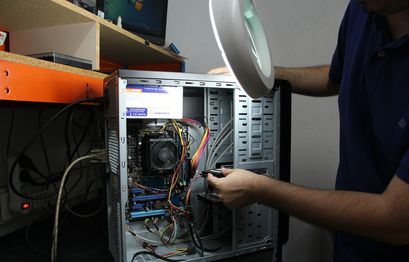Very quietly, the world of finance and fintech changed last week, and it’s made headlines almost nowhere in the world.
The lack of press attention is quite surprising because this is a development that could change the way that people handle investment and trade deals as we know it. It might even be the first step along the path to making the job of an investment broker or trader totally obsolete. We’ll cut right to the chase here – last week, an AI system built and operated by a fintech startup company made its first trade deal with humans last week – and it appears to have been a good one.
Fortech-savvy investors and traders, this day has been coming for a long time.Computers have a far better ability to process numbers than human beings do,and can also identify patterns that can’t be seen by even the best-trainedhuman eye. To a well-coded artificial intelligence program, trading is littlemore than a sequence of numbers, and when the numbers look good, it will make atrade. Now that the program, which is owned by a London-based company calledAiX, has made the breakthrough, it’s a near statistical inevitability thatothers will follow.
Traders and brokers will make the case that the AI doesn’t possess human instincts and therefore can’t make gut decisions, which is a valid point. It also can’t predict a change in behaviour that isn’t there to be seen in the numbers – or it can’t yet, anyway. AiX, however, would point to gut instinct as being negative. Think about a human being playing an UK slots – a valid point because online slots are governed by computer-generated mathematics, and based around probability. A player who has lost money on an online slots game is likely to throw more money after the loss because they’ve reacted emotionally to it. A computer program in the same position would simply stop betting when it feels that the odds of winning anything from the online slots game are no longer in is favour. The principle is the same with trading – if the AI can’t see the good sense to the trade, the trade won’t happen. That might mean that it misses out on the occasional incredible piece of human foresight, but it should also mean that it never makes a bad deal.
Anotherpoint that’s worth mentioning about the AiX program is that having been given arange of options to choose from, it decided to make a simple transactionbetween DV Chain and GSR Markets, and it did it in Bitcoin. It could have usedany currency in the world if it wished to do so, but it chose Bitcoin toannounce itself to the world. We’d suggest that it felt some kinship with themachine-generated currency, but that would be ascribing emotions to the AI thatwe know it doesn’t have. It’s more likely that the software had taken heed ofthe fact that the currency is having its best start to a year inseven years, and hasn’t read any of the negative press suggesting thatit’s too slow, or that it’s trapped in a bull market. That’s another advantageof machines – they don’t care for opinions, only facts.
Notmuch is yet known about AiX, the company responsible for this groundbreakingmoment. The British firm was founded in 2017 but has largely operated below theradar until now. They’re a small startup company with only around fortyfull-time members of staff, but perhaps the comparatively low number of staffreinforces their point. If their AI can agree on trades using text chatservices, the company has no reason to employ people to make trades over thephone. All the AI needs is enough people to repair it if anything goes wrong,and keep it working. Presuming all goes well, the humans who work for thecompany barely need to do a single thing. The money will just keep rolling inoff the back of the AI-generated trades.
While most people will be impressed by the technological advancement that this represents, not everyone will be happy to hear the news. Companies like BGC Partners and TP ICAP, in particular, will likely be feeling extremely uncomfortable at the moment. Their entire business method relies on using the telephone to match sellers and buyers together and taking a fee from the resultant deal. If AiX has demonstrated that they can do the exact same job using a piece of artificial intelligence software, in theory, both companies are obsolete as of today. It will take a while for the market to catch on to the idea, but there’s little reason to doubt that the moment will come.
AiXhas the option to stay in its lane, but it doesn’t appear to be taking it.Digital asset trading doesn’t require any approval from regulators, and so theAI could carry out such trades all day every day if that’s what AiX wanted fromit. They don’t, though. They’ve applied for a trading license from the UK’s FCAand also the Monetary Authority of Singapore. They want their program to haveaccess to all of the markets, and the right to carry out trading activitieswithin them. Taylor Cable, the company’s COO, has been direct about where hesees his innovation going. In his own words, he’s said that he intends toreplace the human trader completely.
Is this it for phone-based traders, then? Are all the hours that they’ve put in making small talk and building rapport with other traders so they can exploit those relationships in the future destined to be wasted? Twenty years from now, will the trading floors of the City of London stand silently while computers do all of the trading? Incredibly, it seems like the answer could be yes. In fact, the only thing that might stop it would be for a major regulator to step in the way and deny AiX a license on the grounds that machines can’t be authorized in the same way people can. Even then, it would likely only delay the inevitable for a while. The rise of the robots might be slower than it could be given that the technology of deep learning for fintech already exists, but it’s already started.












